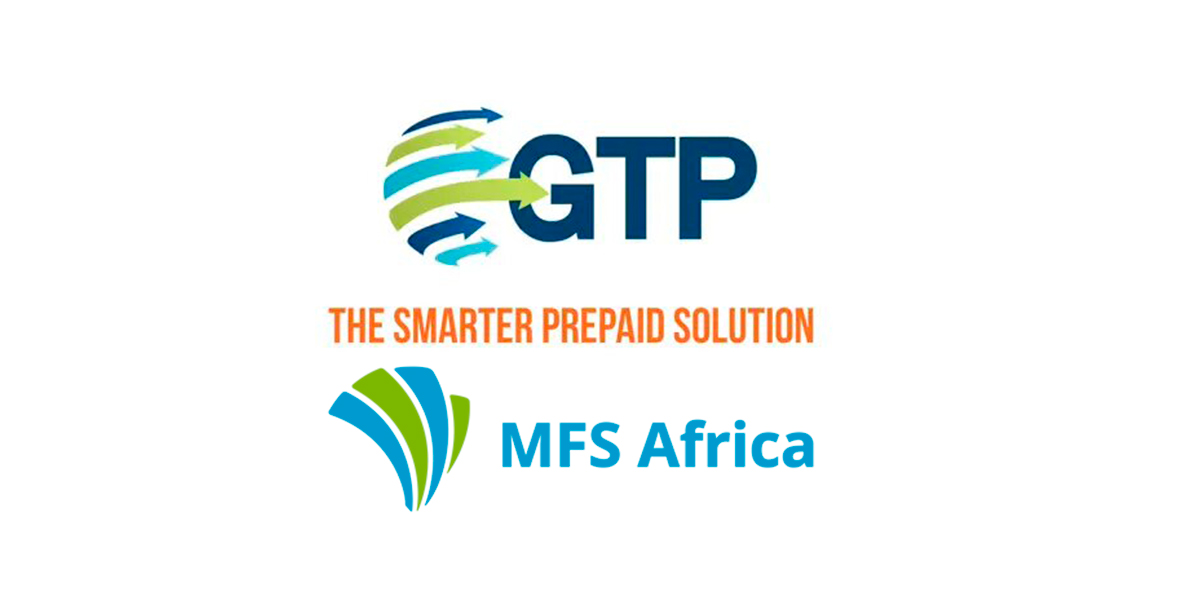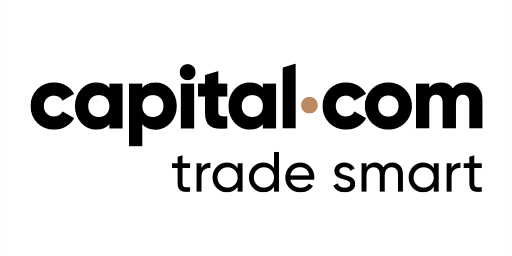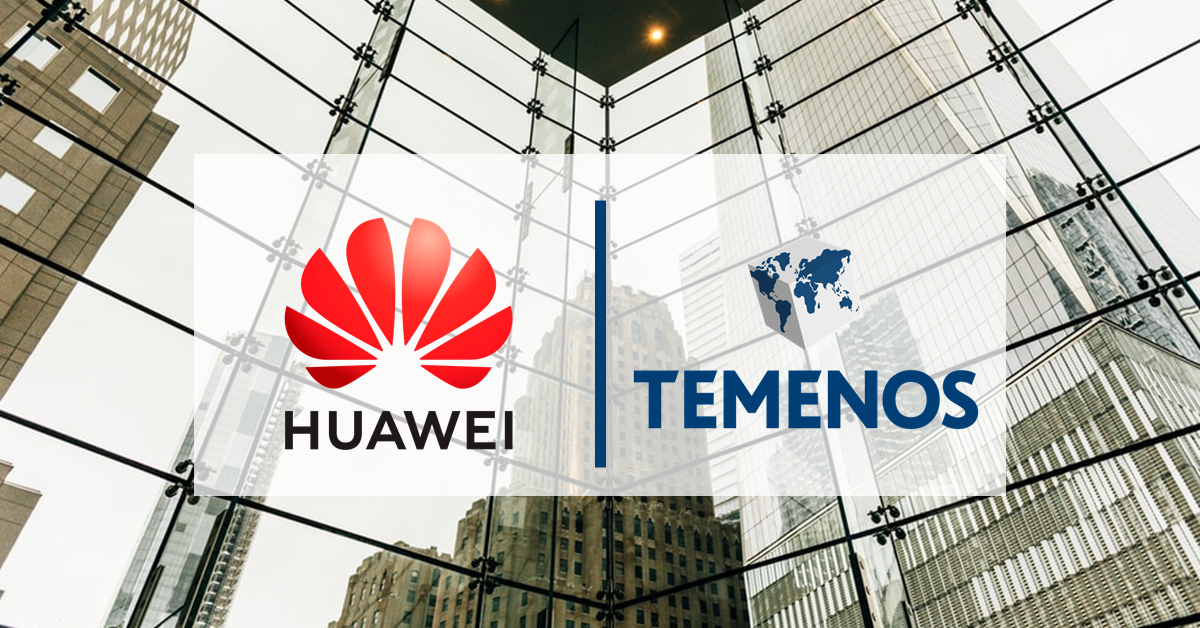Published
- 03:00 am

MFS Africa will leverage on GTP’s prepaid platform and Pan African network of BIN sponsors to launch virtual and physical prepaid / companion cards to over 100 million mobile wallet owners.
This relationship will also facilitate the funding of prepaid cards across the continent using mobile wallets and bank accounts. The cards will run on Visa and Mastercard networks.
57% of Africans don’t have access to basic banking and that statistic also hides a gender gap - in sub-Saharan Africa only 37% of women and 48% of men have a bank account. Historically, Africa has a low density per capita of bank branches and this is even more pronounced in rural areas.
Africans’ rapid take up of mobile phones coupled with digital banking/fintech is a game changer in tackling this.
“We see this relationship as another indication of the strategic alliances required to fulfil the promise of bringing financial inclusion to every eligible African,” said Rich Bialek, GTP CEO.
“One of the key strategies we have had from the onset is to connect Africans with financial services that speak to their everyday lives. This relationship is adding another layer to this as it affords wallet holders the ability to purchase domestically and internationally from millions of merchants,” said Dare Okoudjou, MFS Founder & CEO
Related News
- 04:00 am

The social housing sector is heavily regulated, with housing associations required to support and improve the lives of tenants while meeting a number of regulatory requirements. It’s critical to keep on top of areas including financials, maintenance and repair requirements, void properties, and more.
Many housing associations report difficulties in not only reporting on this information but also analysing it and addressing any problems. While down from 2019, data quality and governance still featured in the top 10 risks and challenges for the sector in the Social Housing Annual Review.
What’s more, because of the inflexible nature of many systems, reports go out of date quickly. This can have serious consequences; for some, it results in a lack of visibility around arrears and the inability to collect debt effectively. For others, it’s a lack of understanding around why certain properties remain empty for so long, which equates to lost revenue.
The data produced by housing associations is rich and valuable, but many find themselves unable to use it in a way that allows them to make better decisions. Here, intelligent IT solutions specialist Perfect Image discusses why analytics can help housing associations improve their operations.
Housing associations suffer from data chaos
“Data chaos”, whereby your data is siloed and therefore unmanageable, is a common concern for housing associations. Part of this issue stems from the fact that there is no one big provider of housing-specific tech that covers all of a social housing provider’s needs. This means housing associations often have a multitude of systems or highly bespoke software to cope with their specific requirements.
The challenge is that these disparate or bespoke systems don’t fit all of their demands – or they might when first implemented, but then things change and technology progresses and then they’re suddenly outdated. If you think of the amount of legislation and compliance involved with housing, it can be very difficult to roll with the times.
Housing associations require specialist systems for many different purposes, such as property management, overseeing external contractors, and internal staff systems for HR and payroll purposes. That’s a lot of data to manage, understand, and analyse.
There might be a recurring problem that your housing association is experiencing regularly. For example, you have a lot of empty properties – why? Is it because there’s a performance issue in your team, or is it that no one wants two bedroom properties in a certain area? These are the questions you need the answer to.
Using analytics tools will help you identify and resolve these issues. You probably have a lot of different systems with all of this information in separately, and it’s hard to get an overview. Analytics can help housing associations with a number of common issues including void properties, repairs and rent arrears.
Quite often, social housing providers will implement analytics as a solution to a specific problem. They’re haemorrhaging money, a vital repair was ignored, a crucial problem with a house was missed. Some companies do proactively adopt analytics to gain the competitive edge and get the answers they need faster, too. We recommend implementing analytics as a way to futureproof your business, improve your tenant experience, and make better decisions rather than in response to an individual issue.
How analytics can help you resolve and prevent common issues
Addressing and preventing rent arrears
Not reconciling rent and utilities arrears equates to money down the drain. In 2020, arrears hit a five-year high in the social housing sector, while rent collection was at its lowest level since 2013. It’s very difficult recovering owed money once someone moves out, and you certainly want to avoid writing off debt because it’s easier than chasing.
You can do things like profiling tenants, allowing you to see who is likely to fall into arrears, with leading analytics platforms. Of course, this has to be done accurately and in a non-biased way. You feed the system all your data and it will identify the key factors, whether that’s geographic or demographic, that make someone high risk for falling into arrears, helping you to flag them as high risk.
It’s important to recognise that this is beneficial to yourself and your tenants; you can contact them in advance to see if they need support with paying their bills, rather than using it as a targeting tool.
Filling your high-priority void properties
Like uncollected rent arrears, you’re losing money when you have empty properties. With coronavirus restrictions, overall social housing void properties increased in 2020. You need to understand why a property is void and what you can do about it. By using analytics, you can identify common themes in empty properties, including their location, the level of furnishing, and the number of bedrooms.
Combining this with your repairs service means that you can also ensure the property is fit for purpose before renting again. In fact, a lack of repairs might be the reason it’s sitting empty. Analytics can help tie these systems together so you can gain an understanding of what repairs and maintenance needs to be done and when.
Managing repairs effectively
Repairs are a necessary but costly part of property management for housing associations. The most recent data from the Regulator of Social Housing shows that maintenance costs £4,120 per property, rising by 7% from the previous analysis in 2017.
Repairs require a lot of attention and can be fit into three categories: responsive work, planned work, and cyclical work. Jobs like a yearly service of boilers across your properties are huge tasks to manage. Of course, this is of tantamount importance because if a boiler explodes and someone gets hurt, you’re liable. That’s a huge amount of risk.
Using powerful analytics programmes, you can predict and plan when these works will take place and view important information including:
completed repairs
overdue repairs
repairs in progress
scheduled repairs
first-time fix rates
a visualisation of repair locations.
If you work with many subcontractors for repairs, you can give them the relevant information on their jobs by providing secured access to your dashboard.
Many housing associations struggle with the same issues when it comes to managing repairs, arrears, void properties, and more. The fact that there are no software solutions that take care of all aspects of social housing management adds to the issue, because housing associations have to rely on multiple, often disparate, systems. Implementing an analytics solution will not only allow you to bring all your data together into one accessible source, but also drill down into it to help you identify and resolve a number of issues. Your business holds and produces mountains of valuable data: it’s time to make it work for you and allow you to make smarter decisions.
Related News

Ed Lane
VP Sales EMEA at nCino
Digital transformation can mean different things to each financial institution (FI). For some, it’s a push to modernise legacy systems and acquire fresh talent. see more
- 05:00 am

More than 63 percent of all new trades executed by UK traders on Capital.com in the past two weeks* have been in financial derivatives linked to shares in the US cinema chain AMC Entertainment (AMC) . This is a significant jump from last month when just 23% of all first-time trades executed by UK clients were derivatives transactions on AMC. UK clients have been piling into the popular AMC trade this week with more than 82% of traders taking a long position in the so-called meme stock. Trading derivatives on AMC has been the top-traded market and instrument on the platform so far this week.
David Jones, Chief Market Strategist at high-growth European trading and investing platform, Capital.com, said: “With the crash in crypto during May, you might be forgiven for thinking that the new breed of traders has struggled to get the lottery ticket fix in financial markets. But fear not – as crypto has waned, the so-called meme stocks have come back from hibernation.
“Since 26 May, US-listed AMC – which owns a chain of cinemas – has seen its stock price more than triple. Just yesterday the shares doubled in value, and it was the most traded in the US. Cast your mind back to January when the hot stock amongst discussion boards like reddit was GameStop – AMC was something of a bit-player in that frenzy but it has moved into the limelight this time around. It's another one where the smaller investor is attempting to squeeze those who have sold short the stock [betting on the share price falling].
“Markets can be difficult enough to explain at the best of times but trying to apply logic to AMC which is up around 3000% this year – depending on where in the day you are looking at the price – is a little futile. It's the concerted effort of thousands of small investors banding together to put one over on Wall Street.
“So far, they have been well-rewarded and who knows when the music stops? It's a new phenomenon for 2021 and it is fascinating to watch, just don't expect to be able to call the top in this one. We may have already seen it, but then again perhaps it doubles in price once more. The volatility is really off the charts and chances are, a little like the cryptocurrency rout in May, when the price turns then a lot of fingers will get burnt.”
Related News
- 08:00 am

Since 2018, Arcane Crypto has built a portfolio of diverse early-stage businesses active in the emerging cryptocurrency sector. As a result, it now represents an appealing option on digital assets adoption among banks and financial investors, which has recently gained significant traction. Its recent listing on the Nasdaq First North exchange following a reverse takeover provides it with an additional funding route to pursue its 'buy and build' strategy.
Due to Arcane Crypto's early development stage, we refrain from valuing the group. However, as a broad reference point, we discuss the valuations of comparable mature businesses. We also note that the subscription price for the new shares negotiated with investors in the directed issue completed in January 2021 was SEK0.50 per share. At the same time, the subscription price as part of the Kaupang (March 2021) and Trijo (April 2021; deal completion in progress) deals stood at c SEK0.11 and c SEK0.27 per share, respectively.
Click here to view the full report or here to sign up to receive research as it is published.
All reports published by Edison are available to download free of charge from its website
About Edison: Edison is a leading research and investor relations consultancy, connecting listed companies to the widest pool of global investors. By focusing on the volume and quality of investors reached - across institutions, family offices, wealth managers and retail investors - Edison can create and gauge intent to purchase, even in the darkest pools of capital, and then make introductions via non-deal roadshows, events or virtual meetings.
Having been the first in-market 17 years ago, Edison now has more than 100 analysts covering every economic sector. Headquartered in London, Edison also has offices in New York, Frankfurt, Amsterdam and Tel Aviv and a presence in Athens, Johannesburg and Sydney.
Edison is authorised and regulated by the Financial Conduct Authority.
Edison is not an adviser or broker-dealer and does not provide investment advice. Edison's reports are not solicitations to buy or sell any securities.
Related News
- 02:00 am

During Huawei Intelligent Finance Summit 2021, Huawei and Temenos, the banking software company, announced a partnership to offer Temenos’ cloud-native core banking solution on the Huawei Public Cloud. Temenos is the first core banking software certified with Huawei infrastructure and Huawei Public Cloud.
Geographically, the partnership covers Asia-Pacific (APAC) with a specific focus on China, and it also includes Africa, Europe, Latin America and the Middle East. The partnership brings together the extensive cloud hosting, implementation, and integration strengths of Huawei and the power of Temenos’ industry leading banking software. The scope of the partnership covers sales and marketing, implementation and training.

Huawei and Temenos Announce Technology Partnership Agreement
Financial institutions will be able to modernize their core banking systems on Huawei Cloud and benefit from elastic scalability, cost and operational efficiencies. Together, Temenos and Huawei will help banks of all sizes to go to market faster, open up new business models, and achieve industry-leading cost/income ratios.
The two companies have demonstrated success and have a number of existing customers and successful projects in APAC. The two companies already see significant market traction and have a number of new prospects in the works. Temenos and Huawei will jointly go to market, focusing on China and moving to more regions with aligned marketing and sales processes.
Temenos and Huawei have extensive reach into the global financial services market. More than 3,000 banking and financial institutions worldwide, serving the banking needs of 1.2 billion people, rely on Temenos cloud-native, API-first technology. Huawei also works with more than 2,000 financial institutions worldwide, including 47 of the world’s top 100 banks.
The growing demand for cloud-based models has accelerated during the coronavirus pandemic, as banks require more resilient and agile technology propositions. Cloud has become the established software deployment method for digital-first banks that need to launch fast with minimum IT infrastructure cost. Larger banks increasingly shift to the cloud to incrementally modernize their systems, reduce IT complexity and cost, and gain greater speed to market.
Philip Barnett, President of Strategic Growth, and Member of Executive Committee of Temenos, said: “We are delighted to extend our leadership in the cloud and be the first to certify with Huawei. This joint go-to-market strategy with Huawei will massively accelerate our market penetration in China which represents approximately a USD 6 billion addressable market, and we are extending to the Middle East, Africa, Europe and Latin America. Together, we can help digital-first banks as well as large banks in need of core modernization accelerate their move to the cloud. Our API-first, cloud-native core banking solution based on Huawei Cloud will provide flexibility, agility, elasticity, and accelerate time to market for banks. Our certification on Huawei Cloud demonstrates that our cloud-agnostic banking platform enables banks to pursue a multi-cloud strategy and have the highest levels of active-active resilience with the cloud provider of their choice."
"Huawei is willing to continue to strengthen cooperation with industry-leading technology solution competent partners such as Temenos. The digital ecosystem is a place where all participants create and share value together. By strengthening partnerships, we can solve problems and create value for customers together, expand the cake, and open up new growth space for the finance industry," said Mr. Ma Yue, Executive Vice President, Huawei Enterprise Business Group (EBG); President, Huawei EBG Global Partner Development and Sales.
Huawei Intelligent Finance Summit 2021 was held in Shanghai from Jun 03 to 04. Huawei Intelligent Finance Summit is a global ICT event hosted by Huawei and focused on the financial industry. It was founded in 2013, all participants were the industry elite in the financial industry. For more information about Huawei Global FSI Summit, please visit: https://e.huawei.com/topic/2021-event-fsi-summit/en /index.html
Related News

Or Azarzar
Co-Founder and CTO at Lightspin
Covid-19 led to a rapid and largely unplanned increase in homeworking and electronic trading resulting in a surge of cyberattacks on financial institutions. Almost all financial see more
- 07:00 am

Lightspin, a pioneer in contextual cloud security that simplifies and prioritizes cloud security for cloud and Kubernetes environments, announced today the discovery of a new method of cross-account attack, leveraging AWS S3 buckets. If leveraged, this attack can cause a real and measurable impact to a business’ bottom line, by opening up certain AWS buckets to unauthorized writes from any AWS account.
Lightspin found this potential misconfiguration as part of its ongoing research into AWS S3 buckets, while researching examples of S3 buckets using the standard AWS bucket permissions. Misconfigured S3 buckets have caused many high-profile attacks, including Booz Allen Hamilton that exposed 60,000 files related to the Dept of Defense and Verizon’s recent exposure of more than 6 million customer accounts.
“AWS doesn’t provide the ability to drill down from a bucket to see the status of all the objects it contains,” said Vladi Sandler, CEO of Lightspin. “In order to be sure that objects are “safe”, its necessary to go through each object’s ACL to check if it is open to the public. We recognize that organizations need better context, so we have developed an open-source scanner that provides exactly this - the visibility and the context to know exactly what objects are publicly accessible, at a glance.”
While Lightspin only checked Cloudtrail and Config, other AWS Services that use S3 buckets to store their data by default may also be at risk from this misconfiguration attack path, and in those cases, may even provide read permissions.
For access to the Lightspin research findings, https://blog.lightspin.io/risks-of-misconfigured-s3-buckets. To download the open source scanner to see which objects are publicly accessible click here.
Related News
- 01:00 am

OctaFX Copytrading is a popular service that allows clients to profit by copying trades from professional traders, also known as Master Traders. The company recently introduced Risk Score—a game-changing feature that enables copiers to choose Master Traders based on the risk of their trading strategy.
OctaFX Copytrading is a top-rated service among the company's clients. There are two great reasons for its popularity. First, you can access the service with just one tap through the OctaFX Copytrading app or the desktop version. Second, you need zero Forex expertise to start making a profit.
Wondering how it works? The clients, known as copiers, choose professional traders, known as Master Traders, to copy their trades. Whenever a Master Trader opens an order, the same order opens in a copier's account automatically. That way, a copier can simply trust a Master Trader's expertise and profit with minimum effort.
However, it is important to choose a Master Trader wisely and invest your funds securely. For this reason, OctaFX offers a Master Rating, where the best traders are placed at the top. Previously, they were evaluated only by their profitability and popularity. Now OctaFX took it to the next level.
OctaFX Copytrading introduced Risk Score—a new feature that shows how risky each Master Trader's strategy is. The score is calculated by a special algorithm and depends on a Master Trader's average profit, number of orders, and how stable their strategy is. The introduction of Risk Score is fundamental because copiers can now choose a Master Trader based not only on their profit but also on their strategy. Master Traders who score 1 or 2 on a 6-point scale apply more stable, long-term oriented, and less risky strategies.
OctaFX hopes that with this new feature, their copy trading clients will be able to choose Master Traders who best suit their preferences.
Related News
- 09:00 am

Virtual cards will unlock untapped potential in the commercial cards sector thanks to the extra security, control and efficiency they provide
Rising proportion of European commercial card spending is virtual
An impressive €42.7 billion was spent on European virtual commercial cards in 2019, accounting for 12% of total commercial card spending, according to RBR’s 19-country study: Commercial Cards in Europe 2021. Virtual card expenditure in the region increased at an average of 32% per year between 2016 and 2019.
Virtual commercial cards are digital card numbers generated centrally or instantly issued, which are distinct from tokenised versions of plastic cards in mobile wallets. They are offered primarily by specialists, but increasingly also by traditional bank issuers.
European plastic and virtual commercial card expenditure (€ billion)

Source: Commercial Cards in Europe 2021 (RBR)
Virtual cards are widely used for booking flights and other procurement
The RBR study reveals that cards associated with travel represented 83% of European virtual commercial card spending in 2019. These include Lodge cards, which are held at travel management companies to pay for their client companies’ flights and other travel expenses. Virtual cards are also used by online travel agencies, such as Expedia, to pay their supply chain (e.g. airlines, hotels and car rental firms).
Virtual Purchasing cards, which are used to facilitate procurement, are also gaining traction. They are used, for example, for office supplies in Poland, managing subscriptions, such as for software packages, in Spain, and social media advertising in Norway. Purchasing cards accounted for 17% of virtual card expenditure in the region in 2019.
Virtual cards are especially advantageous for temporary and remote staff
Security and control are two major advantages of virtual cards. An obvious security benefit is that, unlike physical cards, virtual cards cannot be lost. In addition, virtual card numbers are often generated to settle a specific invoice and expire after use, thereby preventing fraudulent usage. For multi-use virtual cards, company administrators may define the maximum spending amount and the merchant sectors where usage is permitted.
Virtual cards also allow for enhanced efficiency given that they can be issued quickly and easily where it is costly or impractical to issue a plastic card. The growing number of temporary workers and, especially since the outbreak of the COVID-19 pandemic, home-based employees, has made virtual cards a more compelling option for many firms.
Changes in payment behaviour favour virtual cards
The travel restrictions imposed as a result of COVID-19 represent a short-term inhibitor of virtual cards given that many are used for travel-related expenses. As the travel sector recovers, high double-digit growth in virtual card spending is expected to resume.
Chris Herbert, who led the research for RBR commented: “Virtual cards will play a major role in shaping the future of the commercial cards sector as the pandemic has accelerated the shift to online payments. Going forward, the expansion of NFC acceptance will also open up more opportunities in face-to-face payments, with virtual-only cards embedded in mobile wallets increasingly substituting plastic cards”.









